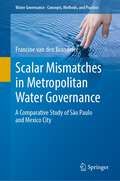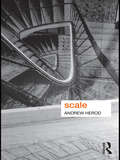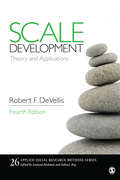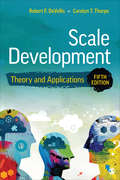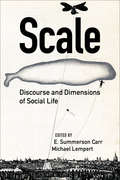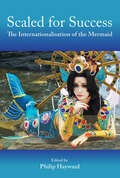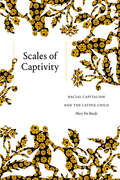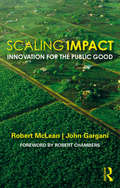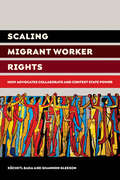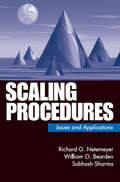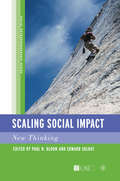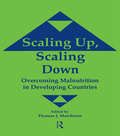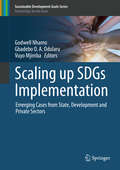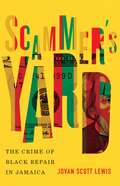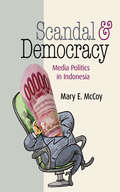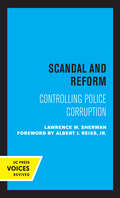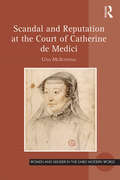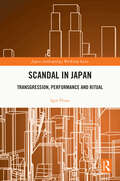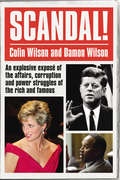- Table View
- List View
Scala Radio's A Soundtrack for Life: Classical Music to Take You Through the Day
by Scala RadioBringing together much-loved masterpieces with exciting new works, this accessible and inspiring guide is a celebration of classical music. With pieces ranging from Vaughan Williams's The Lark Ascending and Beethoven's Pastoral Symphony to the scores for Avatar and Assassin's Creed, each entry puts the piece of music into context, providing fascinating insights into the inspirations behind each work and enhancing your listening experience. Organised into Occasions and Themes, the book features music to accompany you through your day, from getting up and getting dressed to running, reading, walking the dog, cooking, taking a bath, going to sleep and everything in between. You'll also find expert curations of the world's most romantic music and the greatest Christmas choral works as well as compositions that celebrate the natural world and mark births and marriages. Perfect for classical music enthusiasts as well as anyone looking for an enjoyable introduction to this genre, this is the definitive modern guide to classical music.
Scalar Mismatches in Metropolitan Water Governance: A Comparative Study of São Paulo and Mexico City (Water Governance - Concepts, Methods, and Practice)
by Francine van den BrandelerThe book provides insights into the particular nature of water-related challenges in metropolitan regions of the Global South and the “scalar mismatches” that prevent their sustainable and inclusive development. It argues for the adoption of a metropolitan water governance approach to assess these challenges, including the drivers and institutions that shape these, and the policy instruments at river basin and urban scales that aim to address these. The cases of Mexico City and São Paulo, as two mega-cities with a wide ranging of water-related challenges, present lessons to other fast growing urban agglomerations on the variety of possible responses as well as obstacles to their effectiveness that receive little attention.
Scale
by Andrew HerodGeographical scale is a central concept enabling us to make sense of the world we inhabit. Amongst other things, it allows us to declare one event or process a national one and another a global or regional one. However, geographical scales and how we think about them are profoundly contested, and the spatial resolution at which social processes take place – local, regional or global – together with how we talk about them has significant implications for understanding our world. Scale provides a structured investigation of the debates concerning the concept of scale and how various geographical scales have been thought about within critical social theory. Specifically, the author examines how the scales of the body, the urban, the regional, the national, and the global have been conceptualized within Geography and the social sciences more broadly. The first part of the book provides a comprehensive overview of how different theoretical perspectives have regarded scale, especially debates over whether scales are real things or merely mental contrivances and/ or logical devices with which to think, as well as the consequences of thinking of them in areal versus in networked terms. The subsequent five chapters of the book then each takes a particular scale: the body; the urban; the regional; the national; the global and explores how it has been conceptualized and represented discursively for political and other purposes. A brief conclusion draws the book together by posing a number of questions about scale which emerge from the foregoing discussion. The first single-author volume ever written on the subject of geographical scale, this book provides a unique overview in pushing understandings of scale in new and original directions. The accessible text is complimented by didactic boxes, and Scale serves as a valuable pedagogical reference for undergraduate and postgraduate audiences wishing to become familiar with such theoretical issues.
Scale Development: Theory and Applications (Applied Social Research Methods #26)
by Dr Robert F. DeVellisIn the Fourth Edition of Scale Development, Robert F. DeVellis demystifies measurement by emphasizing a logical rather than strictly mathematical understanding of concepts. The text supports readers in comprehending newer approaches to measurement, comparing them to classical approaches, and grasping more clearly the relative merits of each. This edition addresses new topics pertinent to modern measurement approaches and includes additional exercises and topics for class discussion.
Scale Development: Theory and Applications (Applied Social Research Methods #26)
by Dr Robert F. DeVellisIn the Fourth Edition of Scale Development, Robert F. DeVellis demystifies measurement by emphasizing a logical rather than strictly mathematical understanding of concepts. The text supports readers in comprehending newer approaches to measurement, comparing them to classical approaches, and grasping more clearly the relative merits of each. This edition addresses new topics pertinent to modern measurement approaches and includes additional exercises and topics for class discussion.
Scale Development: Theory and Applications (Applied Social Research Methods)
by Robert F. DeVellis Carolyn T. ThorpeScale Development: Theory and Applications, by Robert F. DeVellis and new co-author Carolyn T. Thorpe, demystifies measurement by emphasizing a logical rather than strictly mathematical understanding of concepts. The Fifth Edition includes a new chapter that lays out the key concepts that distinguish indices from scales, contrasts various types of indices, suggests approaches for developing them, reviews validity and reliability issues, and discusses in broad terms some analytic approaches. All chapters have been updated, and the book strikes a balance between including relevant topics and highlighting recent developments in measurement while retaining an accessible, user-friendly approach to the material covered.
Scale Development: Theory and Applications (Applied Social Research Methods)
by Robert F. DeVellis Carolyn T. ThorpeScale Development: Theory and Applications, by Robert F. DeVellis and new co-author Carolyn T. Thorpe, demystifies measurement by emphasizing a logical rather than strictly mathematical understanding of concepts. The Fifth Edition includes a new chapter that lays out the key concepts that distinguish indices from scales, contrasts various types of indices, suggests approaches for developing them, reviews validity and reliability issues, and discusses in broad terms some analytic approaches. All chapters have been updated, and the book strikes a balance between including relevant topics and highlighting recent developments in measurement while retaining an accessible, user-friendly approach to the material covered.
Scale: Discourse and Dimensions of Social Life
by E. Summerson CarrA free ebook version of this title is available through Luminos, University of California Press's new open access publishing program. Visit www.luminosoa.org to learn more. Wherever we turn, we see diverse things scaled for us, from cities to economies, from history to love. We know scale by many names and through many familiar antinomies: local and global,micro and macroevents to name a few. Even the most critical among us often proceed with our analysis as if such scales were the ready-made platforms of social life, rather than asking how, why, and to what effect are scalar distinctions forged in the first place. How do scalar distinctions help actors and analysts alike make sense of and navigate their social worlds? What do these distinctions reveal and what do they conceal? How are scales construed and what effects do they have on the way those who abide by them think and act? This pathbreaking volume attends to the practical labor of scale-making and the communicative practices this labor requires. From an ethnographic perspective, the authors demonstrate that scale is practice and process before it becomes product, whether in the work of projecting the commons, claiming access to the big picture, or scaling the seriousness of a crime.
Scaled for Success: The Internationalisation of the Mermaid
by Philip Hayward“This wonderful book asks us to consider the mermaid . . . across regions, nations, diasporas, and contemporary socio-cultural configurations.” —Paige West, Claire Tow Professor of Anthropology, Barnard College, Columbia UniversityEmerging from the confluence of Greco-Roman mythology and regional folklore, the mermaid has been an enduring motif in Western culture since the medieval period. It has also been disseminated more widely, initially through Western trade and colonization and, more recently, through the increasing globalization of media products and outlets.Scaled for Success offers the first detailed overview of the mermaid’s dispersal outside Europe. Complementing previous studies of the interrelationship between the mermaid and Mami Wata spirit in West Africa, this volume addresses the mermaid’s presence in a range of Middle Eastern, Asian, Australian, Latin American and North American contexts. Individual chapters identify the manner in which the mermaid has been variously syncretized and/or resignified in contexts as diverse as Indian public statuary, Thai cinema and Coney Islands annual Mermaid Parade.Rather than lingering as a relic of a bygone age, the mermaid emerges as a versatile, dynamic and, above all, polyvalent figure. Her prominence exemplifies the manner in which contemporary media-lore has extended the currency of established folkloric figures in new and often surprising ways. Analyzing aspects of religious symbolism, visual art, literature and contemporary popular culture, this copiously illustrated volume profiles an intriguing and highly diverse phenomenon.“No matter the reader’s background (literature, folklore, media or cultural studies, and beyond), there is no denying that this work will be a valuable addition to the library of anyone fascinated with mermaids.” —Western Folklore
Scales of Captivity: Racial Capitalism and the Latinx Child
by Mary Pat BradyIn Scales of Captivity, Mary Pat Brady traces the figure of the captive or cast-off child in Latinx and Chicanx literature and art between chattel slavery’s final years and the mass deportations of the twenty-first century. She shows how Latinx expressive practices expose how every rescaling of economic and military power requires new modalities of capture, new ways to bracket and hedge life. Through readings of novels by Helena María Viramontes, Oscar Casares, Lorraine López, Maceo Montoya, Reyna Grande, Daniel Peña, and others, Brady illustrates how submerged captivities reveal the way mechanisms of constraint such as deportability ground institutional forms of carceral modernity and how such practices scale relations by naturalizing the logic of scalar hierarchies underpinning racial capitalism. By showing how representations of the captive child critique the entrenched logic undergirding colonial power, Brady challenges racialized modes of citizenship while offering visions for living beyond borders.
Scaling Impact: Innovation for the Public Good
by Robert McLean John GarganiScaling Impact introduces a new and practical approach to scaling the positive impacts of research and innovation. Inspired by leading scientific and entrepreneurial innovators from across Africa, Asia, the Caribbean, Latin America, and the Middle East, this book presents a synthesis of unrivalled diversity and grounded ingenuity. The result is a different perspective on how to achieve impact that matters, and an important challenge to the predominant more-is-better paradigm of scaling. For organisations and individuals working to change the world for the better, scaling impact is a common goal and a well-founded aim. The world is changing rapidly, and seemingly intractable problems like environmental degradation or accelerating inequality press us to do better for each other and our environment as a global community. Challenges like these appear to demand a significant scale of action, and here the authors argue that a more creative and critical approach to scaling is both possible and essential. To encourage uptake and co-development, the authors present actionable principles that can help organisations and innovators design, manage, and evaluate scaling strategies. Scaling Impact is essential reading for development and innovation practitioners and professionals, but also for researchers, students, evaluators, and policymakers with a desire to spark meaningful change.
Scaling Migrant Worker Rights: How Advocates Collaborate and Contest State Power
by Shannon GleesonA free ebook version of this title is available through Luminos, University of California Press’s Open Access publishing program. Visit www.luminosoa.org to learn more. As international migration continues to rise, sending states play an integral part in "managing" their diasporas, in some cases even stepping in to protect their citizens' labor and human rights in receiving states. At the same time, meso-level institutions—including labor unions, worker centers, legal aid groups, and other immigrant advocates—are among the most visible actors holding governments of immigrant destinations accountable at the local level. The potential for a functional immigrant worker rights regime, therefore, advocates to imagine a portable, universal system of justice and human rights, while simultaneously leaning on the bureaucratic minutiae of local enforcement. Taking Mexico and the United States as entry points, Scaling Migrant Worker Rights analyzes how an array of organizations put tactical pressure on government bureaucracies to holistically defend migrant rights. The result is a nuanced, multilayered picture of the impediments to and potential realization of migrant worker rights.
Scaling Procedures: Issues and Applications
by Dr Richard G. Netemeyer Dr William O. Bearden Dr Subhash SharmaScaling Procedures: Issues and Applications examines the issues involved in developing and validating multi-item self-report scales of latent constructs. Distinguished researchers and award-winning educators Richard G. Netemeyer, William O. Bearden, and Subhash Sharma present a four-step approach for multi-indicator scale development. With these steps, the authors include relevant empirical examples and a review of the concepts of dimensionality, reliability, and validity. Scaling Procedures: Issues and Applications supplies cutting-edge strategies for developing and refining measures. Providing concise chapter introductions and summaries, as well as numerous tables, figures, and exhibits, the authors present recommended steps and overlapping activities in a logical, sequential progression.
Scaling Social Impact: New Thinking (Social Entrepreneurship Series)
by P. Bloom E. SklootMany social entrepreneurs struggle to take successful, innovative programs that address social problems on a local or limited basis and scale them up to expand their impact in a more widespread, deeper, and efficient way. In Scaling Social Impact , the editors address this issue with a comprehensive collection of original papers.
Scaling Up Scaling Down: Overcoming Malnutrition in Developing Countries
by Thomas J. MarchioneThe individual and institutional capacities required for the prevention and reduction of nutritional insecurity and hunger in lesser-developed countries as the twenty-first century approaches are identified in this book. Household nutritional "security" can be defined as the successful The essays in this book champion the idea of increasing, or scaling up, grass roots operations to provide nutritional security, while scaling down the efforts of national and international institutions. Scaling up involves strengthening local capacities to improve and expand upon current successful programs by building upon existing local culture and organizations. This, in turn, enables the programs to strengthen relationships with national governments, international bilateral/multilateral donors, as well as non-governmental organizations. Scaling down concerns the ways and means by which these various organizations encourage and complement the local development. Therefore, as local capacities are scaled up, the national/international control over decisions and functions is, ideally, scaled down. The volume also directly addresses the resultant complication: how to create programs that are both culturally specific and that will flourish well into the future.
Scaling up SDGs Implementation: Emerging Cases from State, Development and Private Sectors (Sustainable Development Goals Series)
by Godwell Nhamo Vuyo Mjimba Gbadebo O. A. OdularuThis volume challenges global leaders and citizenry to do more in order to resource the implementation of the 2030 Agenda for Sustainable Development (AfSD) and its 17 interwoven Sustainable Development Goals (SDGs). Starting from the concept ‘we cannot manage what we cannot measure’, the book presents some cases showing how to draw national level baselines for the domestication and localisation of the SDGs seeking to provide a clear roadmap towards achieving the 2030 AfSD. Scaling up SDGs Implementation is targeted at the United Nations, national and state governments, sub-national governments, the corporate sector and civil society, including higher education institutes, labour groups, non-governmental organisations and youth movements. The book is cognizant of these institutions’ common, but differentiated responsibilities and capabilities within their socio-political, environmental and economic conditions. The book presents case studies of how the corporate sector has been scaling up SDGs implementation, from the tourism sector, insurance, to the aviation and agricultural sectors. To make sure that no one is left behind, the volume includes cases on solutions for pressing environmental and socio-economic problems ranging from cooperatives in Brazil to the conservation of springs in Zimbabwe. The matter of finding synergies between the climate SDG and the Paris Agreement’s Nationally Determined Contributions (NDCs) is elaborated at length. Lastly, the book discusses how institutions of higher education remain critical pillars in SDGs scaling up, with cases of curriculum re-orientation in South Africa to the rolling out of the Women’s University in Africa. In this context, this volume challenges every global citizen and organization to invest every effort into making the implementation of the SDGs a success as we welcome the second four to five year segment down the road to the year 2030.
Scam: Inside Southeast Asia's Cybercrime Compounds
by Ling Li Ivan Franceschini Mark BoA probing investigation of Southeast Asia&’s online scam industry – told through the voices of survivorsRunning the gamut from the infamous &‘pig butchering&’ romance con to sophisticated online extortion and investment fraud, Southeast Asia has emerged as the global hub for cybercrime. Based on years of field research, Scam takes an in-depth look at the history and inner dynamics of the region&’s online scam industry. Revealed are the appalling working conditions — akin to modern slavery — in the hundreds of prisonlike compounds that have mushroomed throughout multiple countries. The result is a shocking exposé of victims forced to be perpetrators, a tragic modern tale.
Scammer's Yard: The Crime of Black Repair in Jamaica
by Jovan Scott LewisTells the story of Jamaican &“scammers&” who use crime to gain autonomy, opportunity, and repair There is romance in stealing from the rich to give to the poor, but how does that change when those perceived rich are elderly white North Americans and the poor are young Black Jamaicans? In this innovative ethnography, Jovan Scott Lewis tells the story of Omar, Junior, and Dwayne. Young and poor, they strive to make a living in Montego Bay, where call centers and tourism are the two main industries in the struggling economy. Their experience of grinding poverty and drastically limited opportunity leads them to conclude that scamming is the best means of gaining wealth and advancement. Otherwise, they are doomed to live in &“sufferation&”—an inescapable poverty that breeds misery, frustration, and vexation. In the Jamaican lottery scam run by these men, targets are told they have qualified for a large loan or award if they pay taxes or transfer fees. When the fees are paid, the award never arrives, netting the scammers tens of thousands of U.S. dollars. Through interviews, historical sources, song lyrics, and court testimonies, Lewis examines how these scammers justify their deceit, discovering an ethical narrative that reformulates ideas of crime and transgression and their relationship to race, justice, and debt. Scammer&’s Yard describes how these young men, seeking to overcome inequality and achieve autonomy, come to view crime as a form of liberation. Their logic raises unsettling questions about a world economy that relegates postcolonial populations to deprivation even while expecting them to follow the rules of capitalism that exacerbate their dispossession. In this groundbreaking account, Lewis asks whether true reparation for the legacy of colonialism is to be found only through radical—even criminal—means.
Scams and Swindlers: Shocking True Stories of the World’s Most Daring Con Artists
by Jamie KingFilled with tales of con artists and their mind-bending schemes, this thrilling compendium of the world's most incredible scams is truly stranger than fiction. From swindlers and imposters to double lives and faked personas, discover the people behind these scams and the lengths they went to in order to commit them.
Scandal and Democracy: Media Politics in Indonesia
by Mary E. McCoySuccessful transitions to enduring democracy are both difficult and rare. In Scandal and Democracy, Mary E. McCoy explores how newly democratizing nations can avoid reverting to authoritarian solutions in response to the daunting problems brought about by sudden change. The troubled transitions that have derailed democratization in nations worldwide make this problem a major concern for scholars and citizens alike.This study of Indonesia's transition from authoritarian rule sheds light on the fragility not just of democratic transitions but of democracy itself and finds that democratization's durability depends, to a surprising extent, on the role of the media, particularly its airing of political scandal and intraelite conflict. More broadly, Scandal and Democracy examines how the media's use of new freedoms can help ward off a slide into pseudodemocracy or a return to authoritarian rule. As Indonesia marks the twentieth anniversary of its democratic revolution of 1998, it remains among the world's most resilient new democracies and one of the few successful democratic transitions in the Muslim world. McCoy explains the media's central role in this change and corroborates that finding with comparative cases from Mexico, Tunisia, and South Korea, offering counterintuitive insights that help make sense of the success and failure of recent transitions to democracy.
Scandal and Reform: Controlling Police Corruption
by Lawrence W. ShermanThis title is part of UC Press's Voices Revived program, which commemorates University of California Press’s mission to seek out and cultivate the brightest minds and give them voice, reach, and impact. Drawing on a backlist dating to 1893, Voices Revived makes high-quality, peer-reviewed scholarship accessible once again using print-on-demand technology. This title was originally published in 1978.
Scandal and Reputation at the Court of Catherine de Medici (Women and Gender in the Early Modern World)
by Una McIlvennaScandal and Reputation at the Court of Catherine de Medici explores Catherine de Medici's 'flying squadron', the legendary ladies-in-waiting of the sixteenth-century French queen mother who were alleged to have been ordered to seduce politically influential men for their mistress's own Machiavellian purposes. Branded a 'cabal of cuckoldry' by a contemporary critic, these women were involved in scandals that have encouraged a perception, which continues in much academic literature, of the late Valois court as debauched and corrupt. Rather than trying to establish the guilt or innocence of the accused, Una McIlvenna here focuses on representations of the scandals in popular culture and print, and on the collective portrayal of the women in the libelous and often pornographic literature that circulated information about the court. She traces the origins of this material to the all-male intellectual elite of the parlementaires: lawyers and magistrates who expressed their disapproval of Catherine's political and religious decisions through misogynist pamphlets and verse that targeted the women of her entourage. Scandal and Reputation at the Court of Catherine de Medici reveals accusations of poisoning and incest to be literary tropes within a tradition of female defamation dating to classical times that encouraged a collective and universalizing notion of women as sexually voracious, duplicitous and, ultimately, dangerous. In its focus on manuscript and early print culture, and on the transition from a world of orality to one dominated by literacy and textuality, this study has relevance for scholars of literary history, particularly those interested in pamphlet and libel culture.
Scandal in Japan: Transgression, Performance and Ritual (Japan Anthropology Workshop Series)
by Igor PrusaThis book is an exploration of media scandals in contemporary Japanese society. Shedding new light on the study of scandal in Japan, the book offers a novel view of scandal as a specific social ritual which follows moral disturbances in Japanese society. Society and culture are analyzed largely in terms of social performances, while the focus is on how Japanese transgressors talk and act when explaining their scandals to the public. A detailed analysis of three case studies is provided: the drug scandal of the popular Japanese celebrity Sakai Noriko from 2009, the political donation scandal from 2009 centering the heavyweight politician Ozawa Ichirō, and the Olympus accounting fraud revealed by the British CEO Michael Woodford in 2011. This book will appeal to students and scholars of Japanese culture and society, anthropology, communication and media studies.
Scandal in a Digital Age
by Hinda Mandell Gina Masullo ChenThis book explores the way today's interconnected and digitized world--marked by social media, over-sharing, and blurred lines between public and private spheres--shapes the nature and fallout of scandal in a frenzied media environment. Today's digitized world has erased the former distinction between the public and private self in the social sphere. Scandal in a Digital Age marries scholarly research on scandal with journalistic critique to explore how our Internet culture driven by (over)sharing and viral, visual content impacts the occurrence of scandal and its rapid spread online through retweets and reposts. No longer are examples of scandalous behavior "merely" reported in the news. Today, news consumers can see the visual evidence of salacious behavior whether through an illicit tweet or video with a simple click. And we can't help but click.
Scandal!: An Explosive Exposé of the Affairs, Corruption and Power Struggles of the Rich and Famous
by Colin Wilson Damon WilsonWhat makes a good scandal? Money, politics and power, and a huge dose of media interest. Scandal reigns in the world of politics, celebrity, business, religion, royalty and art, and this book covers it all - from Watergate to Michael Jackson, Diana to Oscar Wilde. Distinguished writer Colin Wilson delves into the murky intrigues of British and American life to bring the most scandalous secrets to light.Containing brand new chapters on Michael Jackson, ENRON, the death of David Kelly, the Catholic Church sex scandals and the cash-for-honours scandal, and an updated chapter on OJ Simpson, here are the embarrassing true stories the rich and famous tried but failed to hide.

